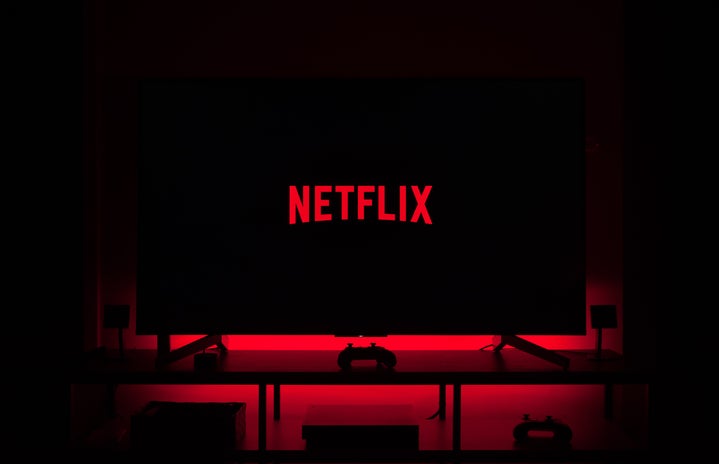Edited by: Navya Kopparthi
Fantasy as a genre is known to be heavily permeated by issues like homophobia, racism, and your good old misogyny, be it in books or on the screen. The tussle for representation of respectable female leading characters — equipped with a strong sense of individuality, agency, and the ability to be accountable for their own decisions — is an ongoing struggle. It is questionable whether this particular controversy has encountered any significant progress in the past fifteen years.
A decade ago, Buffy reigned as a pop culture icon and was a widely identifiable representation of the “Girl Power” movement. However, if we trace the evolution of the fantasy genre, one thing becomes abundantly clear. Shows like ‘Buffy‘ and ‘Charmed’ from the 90s, and even more recent works like ‘Twilight’ and ‘The Vampire Diaries’, were all, at some point, trumpeted as the height of ‘girl power feminism’ with an air of radical progressiveness, owing to their female lead characters.
But, they have aged quite poorly; even at their most progressive, most of these shows were filtered by the male gaze. With their white, upper-middle-class stories rooted in privilege (and without any acknowledgement of said privilege whatsoever), the ‘girl power feminism’ they claimed to be ardent proponents of turned out to be shallow at best. Through a 2021 lens, they come out discernibly as products of and manufactured for the male gaze.
It is pretty shameful, considering that women, specifically younger women among other gender minorities, have been the largest and most consistent audience to fantasy shows and cinema for much of the last couple of decades. And I think I speak for all of us non-cis-men when I say that the genre deserves to do better by us.
That is why binge-watching Netflix’s 2021 release Shadow and Bone in less than forty-eight hours felt like a sigh of relief, a rush of adrenaline, and a plethora of feelings ranging from liberating euphoria and pure excitement with a touch of impatience for the release of the next season. You know, all the things a good fantasy show is supposed to make you feel, except this was way more significant in other ways as well.
What is Shadow and Bone all about?
Shadow and Bone is based on a trilogy of novels penned by Leigh Bardugo, which became extremely popular with young women. Based in an alternate universe torn by war, it centres around the coming-of-age story of Alina Starkov, an orphaned teen. She discovers she is blessed with magical abilities, including the ability to summon light and channel the sun.
While I was initially a little reluctant, expecting the same tired and clichéd fantasy tropes, it was a pleasant surprise when Shadow and Bone ended up offering a lot more. To begin with, it is a refreshing change to see Alina as no passive narrator being shoved about by fate, but instead, as a strong character who is the driver of her own destiny despite any circumstances.
She does not stand around waiting for the men in her life to make her decisions for her; she has the agency to make her own choices at every turn. Sometimes these choices save lives; at times, they end up taking them too. At one point in the show, her choices hilariously end up accidentally assisting in her own kidnapping. Still, it is undeniable that the choices are hers to claim accountability for at the end of the day.
Comparing the Show to Others in its Genre
The show does take on some paths ventured extensively by its predecessors in the genre, like The Hunger Games and Twilight; for example, the main character is torn between two men. However, Shadow and Bone does not exaggerate the love triangle to bring down the female lead in any way.
There are also strong female friendships and ally ships. A personal favourite from the show is when Alina and another character, Genya, speak about the men in their lives using them as a means to an end; they talk about loyalty, survival, and freedom, with an incredible amount of nuance. And honestly, it is about time that these shows, which are geared towards young women at the end of the day, give us the well-rounded, well-written, nuanced characters we deserve.
The ‘F’ in Shadow and Bone Stands for Failure in Diverse, Accurate Representation
In fact, the showrunners, and may I mention, a diverse team of primarily female screenwriters of Shadow and Bone, step up significantly with respect to the representation of people of colour and queerness from the original book, which is based on an entirely cisgender, heterosexual, white world. People of colour almost entirely narrate the show; there are queer characters of colour, with very easy to sympathise with stories.
Alina herself, portrayed by up-and-coming actor Jessie Mei Li, is biracial (or half-Shu, the fantasy universe’s reimagination of China). This means there is always a genuine, perceptible level of constant discrimination and microaggressions for her to deal with.
That said, the show has faced some criticism in this particular regard. East Asian people themselves who have watched the show have remarked how its race politics seem underdeveloped and even half-baked. The racial otherness flung at Alina in every episode has been regarded as painful to watch, especially in a fantasy world where one might hope to actually escape the aggressive anti-Asian rhetoric the world holds up at large. Just consider all the acts of violence against Asians which has only increased in the context of the Covid-19 pandemic. On that note, it bears mentioning that given how none of the other characters of colour in the show were portrayed to ever face any kind of racism in the show, it has been rightly pointed out that the racial politics of the fantasy world of Shadow and Bone needed a much more nuanced, complex and deeper examination and explanation than what has been portrayed.
All the same, the series does indeed further minimize much of the areas of the book where Alina is at her most powerless or feeling insecure, in favour of scenes where she takes charge of her destiny. Finally, although her costumes are stunning, lush creations (it is so exciting just thinking of the cosplay they will influence!), Alina is never sexualized for the male gaze in them.
Beyond improving Alina’s character significantly, the show also does a lot to fix the character arcs of both the significant men in her life — both of whom were different kinds of toxic in the book — and her relationships with them. Acknowledging problematic relationships, but simultaneously making it clear to viewers that the power differential between them ultimately puts one of them in control, the show displays an incredible kind of nuance that is so desperately missing in fantasy shows.
Alina’s best friend, Mal (Archie Renaux), who spent most of the books being sullen that she was more important than him, transforms into a genuine friend whose actions never undermine Alina’s choices. Their relationship is also portrayed beautifully on the screen.
Final Thoughts
To conclude, Shadow and Bone represents a significant step forward for lovers of the fantasy genre, both from its source material and within the genre. It shows audiences what a woman in the lead looks like, instead of loudly insisting that just because she is in a lead role, she is automatically a leader. Works like this, which do away with the male gaze, are very important in the fantasy genre, seeing how women are the primary consumers of the same and are deserving of such representation and female gaze-oriented shows.


